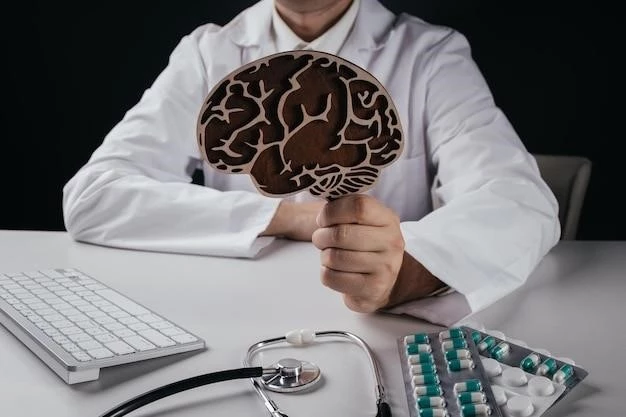Introduction to Organic Brain Syndrome
Organic brain syndrome, also known as organic brain disease or organic mental syndrome, refers to brain dysfunction with organic causes. It encompasses various neurocognitive disorders affecting the central nervous system.
Definition and Overview
The term ″Organic Brain Syndrome″ refers to a group of neurocognitive disorders with physiological causes affecting the brain’s function. It encompasses conditions like Alzheimer’s disease, vascular issues, and traumatic brain injury.
Throughout history, the concept of organic brain syndrome has evolved, encompassing a spectrum of neurocognitive disorders with physiological origins. Early classifications and diagnostic criteria have transformed over time, reflecting advancements in understanding various organic brain diseases and their impact on mental health. The historical perspective sheds light on the changing landscape of this field, highlighting the progression from general terms in psychiatry to more specific and comprehensive classifications of disorders affecting the central nervous system.
Historical Perspective
The concept of Organic Brain Syndrome has evolved over time, encompassing various neurocognitive disorders with physiological origins. Early classifications have transformed reflecting advancements in understanding organic brain diseases and their impact on mental health.
Acute Organic Brain Syndrome
Acute organic brain syndrome, often resulting from intoxication, drug overdose, infections, or other medical conditions affecting the nervous system, manifests as rapid-onset mental impairment. Symptoms include cognitive dysfunction, altered emotional expression, and disturbances in alertness and vigilance.
Chronic Organic Brain Syndrome
Chronic organic brain syndrome results from long-term conditions like neurodegenerative diseases or persistent substance abuse, leading to ongoing cognitive and emotional disruptions. Causes include Alzheimer’s disease, Parkinson’s disease, chronic alcoholism, and repeated head injuries.
Causes⁚ Traumatic Brain Injury, Neurodegenerative Diseases, Substance Abuse
Organic brain syndrome can be caused by various factors including traumatic brain injury, neurodegenerative diseases like Alzheimer’s, and substance abuse such as chronic alcoholism. These conditions lead to structural or functional brain damage resulting in cognitive and emotional disturbances.
Symptoms and Clinical Features
Organic brain syndrome presents symptoms like cognitive dysfunction, emotional disturbances, and issues with alertness and vigilance. These clinical features vary based on the underlying cause.
Cognitive Dysfunction
Cognitive dysfunction is a key feature of organic brain syndrome, encompassing impairments in memory, thinking, perception, and attention. These deficits can significantly impact an individual’s daily functioning and quality of life.
Emotional Disturbances
Emotional disturbances are prevalent in organic brain syndrome, manifesting as alterations in emotional expression, mood swings, and inappropriate responses to situations. These disturbances can significantly impact an individual’s interpersonal relationships and general well-being.
Alertness and Vigilance Issues
Alertness and vigilance issues are common in individuals with organic brain syndrome, leading to difficulties in maintaining attention and awareness. These challenges can impact daily functioning and interaction with the environment.

Diagnosis and Assessment
Diagnosis of Organic Brain Syndrome involves neurocognitive testing and differential diagnosis to understand the underlying cause. Early detection is crucial for effective management.
Neurocognitive Testing
Neurocognitive testing plays a crucial role in diagnosing organic brain syndrome, assessing various cognitive functions like memory, attention, and executive skills. These tests provide valuable insights into the extent of cognitive impairment and help in determining appropriate management strategies.
Differential Diagnosis
Organic brain syndrome requires a thorough differential diagnosis to distinguish it from other mental health conditions. Understanding the specific indicators and characteristics is essential for accurate identification and appropriate treatment planning.
Importance of Early Detection
Early detection of organic brain syndrome is crucial as it allows for timely intervention and appropriate management strategies. Detecting the condition in its early stages can help improve outcomes, slow disease progression, and enhance the quality of life for affected individuals.
Treatment and Management
Treatment for organic brain syndrome involves medications and therapies tailored to address cognitive, emotional, and behavioral symptoms. Rehabilitation programs and supportive care are vital for improving patient outcomes.
Medications and Therapies
Treatment of organic brain syndrome typically involves a combination of medications to address specific symptoms like memory loss, confusion, and behavioral changes. Therapies such as cognitive rehabilitation and psychotherapy play a crucial role in improving cognitive functions and emotional well-being.
Rehabilitation Programs
Rehabilitation programs for organic brain syndrome encompass cognitive therapies, physical exercises, and occupational therapy to improve cognitive functions, enhance daily living skills, and promote independence. These programs play a vital role in facilitating recovery and optimizing the quality of life for individuals affected by organic brain syndrome.
Supportive Care for Patients and Families
Supportive care for individuals with organic brain syndrome includes providing emotional support, assisting with daily activities, and offering guidance to families on coping strategies. Support plays a vital role in enhancing the overall well-being and quality of life for both patients and their families.

Prognosis and Long-Term Outlook
Organic brain syndrome can have a profound impact on an individual’s quality of life and may lead to various complications. Understanding the prognosis and long-term outlook is essential for effective management and coping strategies;
Impact on Quality of Life
Organic brain syndrome can have a significant impact on an individual’s overall quality of life, affecting cognitive functions, emotional well-being, and daily functioning. Understanding these impacts is crucial for effective treatment and support.
Potential Complications
Organic brain syndrome can lead to various complications, including worsening cognitive decline, increased dependency on others for daily activities, and higher susceptibility to other medical conditions. Understanding these potential complications is essential for long-term care planning and intervention strategies.
Strategies for Coping and Adaptation
Individuals with organic brain syndrome may benefit from coping strategies that involve cognitive exercises, emotional support, and lifestyle modifications. Adaptation techniques such as memory aids and structured routines can help improve daily functioning and enhance overall well-being for patients and their families.
Research and Advances in Organic Brain Syndrome
Recent studies show advancements in understanding organic brain syndrome, contributing to improved diagnostic criteria and treatment modalities. Explore current research findings and future directions in addressing neurocognitive disorders.
Current Studies and Findings
Recent studies focus on understanding the complex nature of organic brain syndrome, exploring diagnostic advancements, treatment effectiveness, and long-term outcomes. Stay updated on the latest research findings to enhance clinical management and patient care.
Emerging Treatment Modalities
Ongoing research in organic brain syndrome is exploring emerging treatment modalities, including pharmacological interventions, cognitive enhancement therapies, and novel approaches like brain stimulation techniques. These advancements aim to improve patient outcomes and quality of life through innovative and personalized treatment strategies.
Future Directions in Neurocognitive Disorders
The future of neurocognitive disorders, including organic brain syndrome, lies in continued research to develop innovative treatment approaches, personalized interventions, and potential preventive strategies. By understanding the underlying mechanisms and exploring novel therapies, the field aims to enhance patient care, improve outcomes, and address the complex nature of neurocognitive disorders.
